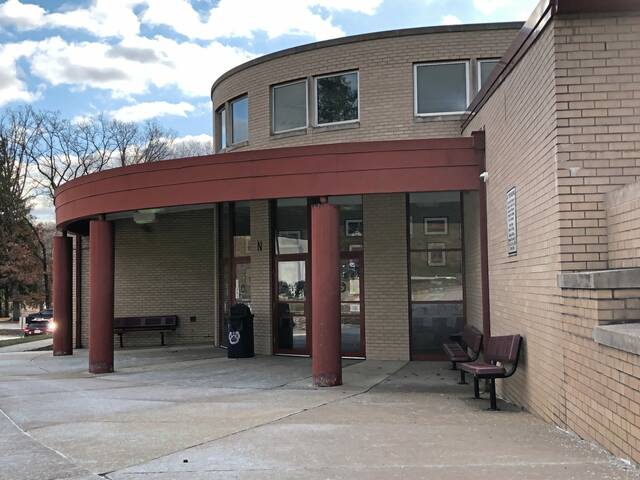Funding Pennsylvania’s 500 school districts was never going to be an easy equation to solve.
The diverse nature of the state — rural and urban, wealthy and poor — coupled with funding decisions enacted by Pennsylvania lawmakers resulted in a lawsuit being filed eight years ago, claiming bias in the state’s school funding model.
The court battle ended last week when a judge ruled the existing school funding model is unconstitutional.
A nearly 800-page ruling authored by Commonwealth Court President Judge Renee Cohn Jubelirer says the state’s funding model fails to provide enough resources to allow all Pennsylvania students to receive an equal and meaningful education. She ordered lawmakers to craft a new system for funding Pennsylvania’s public schools.
Ramifications of that decision might depend on where someone lives.
Jeannette City School District Superintendent Matt Jones oversees the the small, central Westmoreland County system with about 960 students that has struggled to balance its funding needs with a dwindling student enrollment in a community that has seen its tax base shrink over the decades.
“It’s a challenge here in Jeannette because we are geographically very small and we don’t have an ability to support our district on a local level. There needs to be changes on the state level,” Jones said. “You can’t treat every district and every student the same. We’ve gotten lost in that process, and there has to be a (funding) formula to take that into account.”
Jones said he is hopeful the court ruling will infuse new funding into a district that, during the 2020-21 school year, relied upon $20 million in operating revenue culled primarily through state funding allocations. Just more than a quarter of the district’s operating revenues were generated from local taxes, according to financial reports published by the Department of Education.
A Pennsylvania School Boards Association study found that, during the 2019-20 school year, district revenues generated from local taxes accounted for nearly 56% of their budgets, compared with almost 37% that was paid for by state allocations.
Franklin Regional School District, based in the wealthier community of Murrysville, had about 68% of its $61.2 million revenues generated by local taxes.
“Property taxes are not an effective means of revenue,” said Superintendent Gennaro Piraino Jr. “Here at Franklin Regional, local taxpayers are footing a larger portion of the bill.”
He said the Commonwealth Court ruling ultimately could be a bad outcome for his district.
“For Franklin Regional, that determination is terrible. It will take money from local taxpayers and will pull finances from Franklin Regional’s residents and move it to other districts,” Piraino said.
Background on the court case
The landmark court ruling stemmed from a lawsuit filed in 2014 by six school districts and parents who claimed Pennsylvania’s school funding model was biased against poor communities. Students in those districts received fewer educational opportunities because of funding deficiencies, according to the lawsuit.
The state’s General Assembly, along with the governor’s office and Department of Education, were named as defendants in the litigation and, during court proceedings, disputed the allegations. Experts for the districts at the center of the litigation argued schools were underfunded by as much as $4.6 billion.
Michael Rebell, executive director of the Center for Education Equity in New York, praised the court ruling as one of the strongest that has been issued in similar lawsuits from across the United States over the last half-century.
“It is so powerful, I think it will be difficult to overrule,” said Rebell, who has litigated a similar case against the state of New York.
Rebell said it ultimately will be up to state officials to determine substantive changes to bring Pennsylvania’s education funding into compliance with the court order. But he suggested a comprehensive increase in funding — rather than shifting existing resources to poorer districts — has proved successful in other states.
“This doesn’t have to be a Robin Hood approach. You don’t have to take from some districts to give to others,” Rebell said.
Christopher Sefcheck, superintendent of the New Kensington-Arnold School District, agreed that more funding is needed.
“This is a first step. Money is a gateway to opportunity,” Sefcheck said. “We’ve been dealing with declining enrollment and declining funding. More money means we’d be able build new facilities, increase programs so we can really prepare our students. We have some brilliant kids who now don’t have the opportunities.”
New Kensington-Arnold School District, like Jeannette, relies heavily on state funding. Local taxes accounted for just 30% of the district’s budget in 2020-21.
The waiting game
Other districts are taking a wait-and-see approach to the court ruling.
Penn Hills Superintendent Nancy Hines said officials are evaluating the impact of the decision.
“This ruling looks very promising for districts such as ours, and we in the Penn Hills School District look forward to hearing more about (the) implications,” Hines wrote in an email.
What happens next is still to be determined.
Senate Majority Leader Joe Pittman, R-Indiana County, issued a statement this week saying a decision to appeal the court ruling is still under consideration.
“The Senate Republican Caucus is committed to prioritizing education empowerment and access for students across Pennsylvania, as is evidenced by a historic level of investment in public education included in the current 2022-23 and prior state budgets. Our system has always sought to support state and local taxpayers, whom we will continue to respect moving forward as we address all needs of the commonwealth,” Pittman said.
Still, lawyers with the Education Law Center, which litigated the lawsuit since it was filed in 2014, said lawmakers can immediately begin work to reconstruct the state’s funding mechanism for schools.
“There’s nothing to stop the Legislature from acting on it this budget cycle,” said Education Law Center legal director Maura McInerney.








